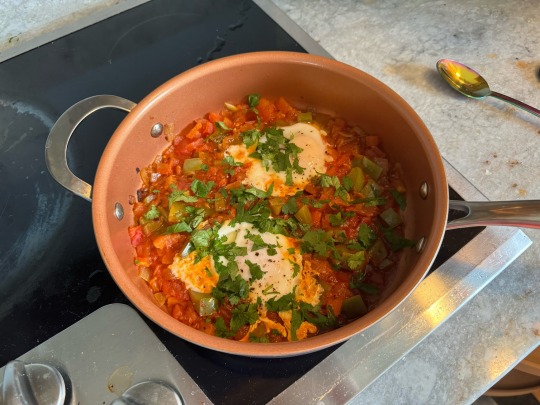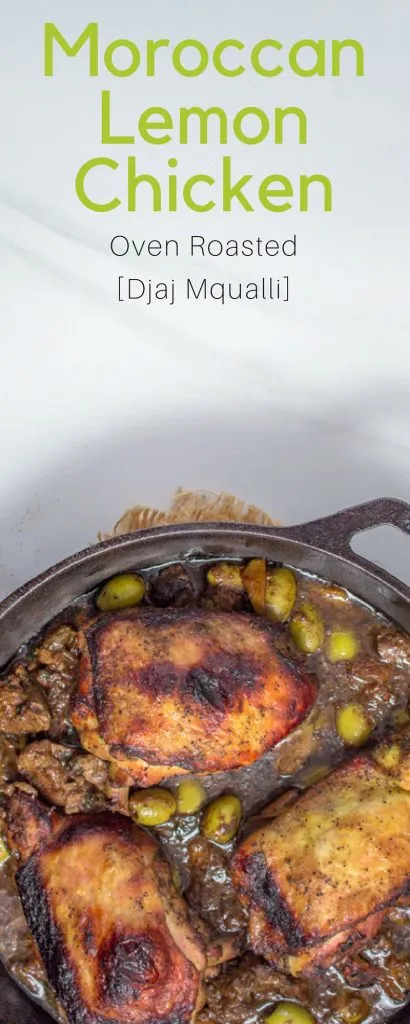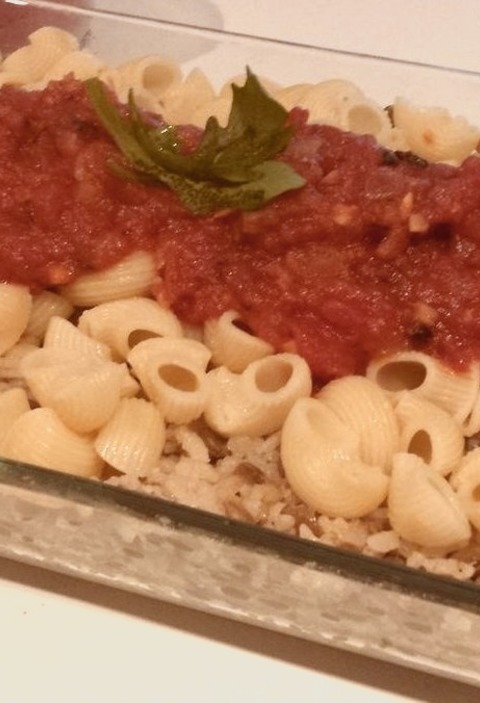#North African cuisine
Explore tagged Tumblr posts
Text

Moroccan Citrus Salad (Vegan)
#vegan#appetizer#breakfast#moroccan cuisine#North African cuisine#african cuisine#fruit salad#saffron#orange#mandarins#grapefruit#pomegranate#mint#cinnamon#lemon#lime#pistachios#fennel#orange blossom water#maple syrup#🧡#❤️
133 notes
·
View notes
Text
How some ATLA nations inspired platters may look like
. Earth Kingdom : Kimchi Jigae, Steamed Fish, Bok Choy, Red Bean Soup, and White Rice
. Kyoshi Island : Grilled Mackarel, Onigris, Miso Soup, Japanese Omelette, and Matcha
. Fire Nation : White Rice, Mapo Tofu, Banana Leaf Fish Curry, and Thai Shrimp and Grapefruit Salad, and a small bowl of sliced dragon fruit for desert
. Air Nation : Tibetan Butter Tea, Momos, Fried Thupka with Lamb Brisket, and Tsampa Balls
. Si Wong Desert : Goat Kabsa, Beef Brisket Tagine, Dolmas, Camel Milk Tea and Kunafa for dessert
. Southern Water Tribe : Qurt, Beshmarak, Buuz, Buryati Dough Cookies and Yak Milk Tea
. Northern Water Tribe : Reindeer Stew, Ice Cold Raw Fish Slices, Yak Milk Pudding with Red Berries, and Tsuivan
#atla#earth kingdom#kyoshi island#water nation#air nation#fire nation#atla cuisines#chinese cuisines#kazakh cuisine#mongolic cuisine#arctic cuisine#yakut cuisine#tibetan cuisine#indian cuisine#southeast asian cuisine#arabian cuisine#tuareg cuisine#north african cuisine
4 notes
·
View notes
Text
Instant Pot Chicken Tagine with Apricots and Chickpeas
Chicken Tagine with Apricots and Chickpeas is a flavorful North African dish, particularly popular in Moroccan cuisine. It is typically slow-cooked in a tagine, a type of earthenware pot that allows the ingredients to cook gently and retain the meats moisture. Read more about the tagine here: Moroccan Chicken With Olives and Preserved Lemons. Moroccan Chicken With Olives and Preserved…
0 notes
Text
Harissa: The Essential North African Spice You Need
Photo by Markus Spiske from Pexels: Harissa: Your New Go-To for a Kick of North African Spice Meet harissa, the chili paste with a serious personality! Originating from the kitchens of North Africa, harissa adds instant warmth and depth to almost anything it touches. Made from a blend of roasted red peppers, spicy chilies, garlic paste, cumin, coriander, and caraway and olive oil – harissa…
#cookbooks#cooking#culinary arts#culture#food#harissa#morrocan cooking#north african cuisine#Recipes#society#spices#splash!#tagine#tangiers
0 notes
Text



shakshuka!
#learning to cook was the best thing i ever did for my mental health#shakshuka#my cooking#north african cuisine#middle eastern cuisine#breakfast
0 notes
Text

Shakshuka - A spicy egg and tomato dish invented by Maghreb Jews in North Africa and adopted all over the Middle East 🥚🍅🍳
#foodglorious-food#foodporn#yummy#foodblogger#foodgloriousfood#lunch#dinner#food#breakfast#eggs#shakshuka#tomato's#maghreb#North African#African Jews#Moroccan#mizrahi jews#mizrahi cuisine#mizrahi cooking#Sephardic Jews#Sephardi#foodblog#foodie#follow foodglorious-food#vieformidable#follow vieformidable#pasta#cheese#brunch
30 notes
·
View notes
Text
szechuan gyro
#ik something probably veyr similar already exists within chinese cuisine normally but the idea of a spicy numbing juicy phat gyro with a mix#of chinese and north african spices is making me get a little lightheaded#with shredded cabbage and tomatoes and a squeeze of some acid#please.
3 notes
·
View notes
Text
"Morocco: A Journey Between Desert and Sea"










#travellers#beauitful#beautiful photos#beautiful place#traveling#travel#travel blog#tourism#tourist#life#travel photography#travel photoset#travel photo diary#North African#couscous#tagine#Moroccan cuisine#Rabat culture#Casablanca architecture#golden trio rp#trip#traditional art#beauty
1 note
·
View note
Text









Unrelated to any fandom stuff but hey, foods I've had while in the UK this year ! Middle one is the only dish I prepared lol
#tomato egg/shakshuka we love a stapple of North African home cuisine#personal#xyz#this year had its ups and downs academically and personally but looking back i think im happy with how it went#tried a lot of delicious foods
0 notes
Text

Moroccan Salad Bowl with Preserved Lemons (Vegan)
#vegan#lunch#dinner#moroccan cuisine#north african cuisine#african cuisine#buddha bowl#rice bowl#couscous#cucumber#olives#tomatoes#zucchini#chickpeas#eggplant#preserved lemon#mint#pomegranate#garlic#paprika#chili#cumin#olive oil#black pepper#sea salt#eat the rainbow
274 notes
·
View notes
Text

Once upon a time in the bustling souks of Marrakech, there lived a talented young chef named Ahmed. Ahmed was known far and wide for his culinary prowess, particularly when it came to crafting the most mouthwatering Moroccan dishes.
One sunny afternoon, as Ahmed was browsing the vibrant market stalls for fresh ingredients, he stumbled upon a curious sight—a crate overflowing with the juiciest lemons he had ever seen. Inspired by this fortuitous find, Ahmed decided to create a new recipe that would showcase the bright and zesty flavors of these magnificent lemons.
Heading back to his kitchen, Ahmed set to work preparing his masterpiece—Moroccan Lemon Chicken Oven Roasted, or Djaj Mqualli as it was known in his homeland. He carefully seasoned the succulent chicken with a blend of aromatic spices, including cumin, paprika, and turmeric, before generously squeezing fresh lemon juice over the top.
As the chicken roasted in the oven, filling the air with tantalizing aromas, Ahmed couldn't help but hum a cheerful tune. Little did he know, his melodious singing had attracted the attention of a mischievous little genie who had been lurking nearby.
Intrigued by the delicious scent wafting from Ahmed's kitchen, the genie decided to pay him a visit. With a mischievous twinkle in his eye, the genie waved his magic wand and cast a spell over the chicken, infusing it with an extra dose of lemony goodness.
When Ahmed opened the oven to check on his creation, he was amazed to find that the chicken had transformed into the most delectable dish he had ever laid eyes on. Tender and juicy, with a tantalizing citrus flavor that danced on the taste buds, it was truly a feast fit for a sultan.
Word of Ahmed's extraordinary Moroccan Lemon Chicken Oven Roasted spread like wildfire throughout Marrakech, and soon people from far and wide were flocking to his restaurant to sample the magical dish for themselves. From that day forward, Ahmed's Djaj Mqualli became a beloved staple of Moroccan cuisine, cherished by all who had the pleasure of tasting it. And as for the mischievous little genie? Well, let's just say he was never far from Ahmed's kitchen, always eager to lend a hand—or a sprinkle of magic—whenever needed.
#1. Moroccan cuisine#2. Homemaking#3. Culinary journey#4. North African cooking#5. Traditional recipes#6. Innovative creations#7. Spice markets#8. Cultural heritage#9. Family traditions#10. Tagine#11. Harira soup#12. Moroccan pastries#13. Exotic flavors#14. Cooking techniques#15. Culinary exploration#16. Authentic dishes#17. Recipe collection#18. Food photography#19. Gastronomic adventure#20. Flavorful experiences
1 note
·
View note
Text
Canadian-made African spices
Experience the vibrant fusion of Canadian-made African spices from Kan Kan. Our expertly crafted blends bring the rich, diverse flavors of West Africa to your table, offering a unique taste of something truly extraordinary, proudly made right here in Canada.
#Canadian-made African spices#Natural North American spice blend#Nigerian BBQ seasoning#Authentic African-American cuisine spices
0 notes
Photo

One-Pot Moroccan Shrimp Tagine The rich flavors of Morocco shine through in this one-pot shrimp tagine dish that's as easy as it is delicious. Serve over prepared couscous.
0 notes
Photo

North African - Koshary
#A combination of lentils#rice#and pasta are served with a variety of toppings and condiments as Egypt's preferred street food. street#street food#cuisine#north african#egypt#heat
0 notes
Text
The Best News of Last Week - June 20, 2023
🐕 - Meet Sheep Farm's Newest Employee: Collie Hired After Ejection from Car!
1. Border Collie ejected from car during Sunday crash found on sheep farm, herding sheep

Tilly, the 2-year-old Border Collie who was ejected from a car Sunday during a crash, has been found. He was found on a sheep farm, where he had apparently taken up the role of sheep herder.
According to Tilly's owner, he has lost some weight since Sunday's crash and is now drinking lots of water but is otherwise healthy.
2. After 17-Year Absence, White Rhinos Return to the Democratic Republic of the Congo

The Democratic Republic of the Congo (DRC) recently welcomed the reintroduction of 16 southern white rhinoceroses to Garamba National Park, according to officials. The last wild northern white rhino was poached there in 2006.
The white rhinos were transported to Garamba, which lies in the northeastern part of the country, from a South African private reserve. In the late 19th century, the southern white rhino subspecies was believed to be extinct due to poaching until a population of fewer than 100 was discovered in South Africa in 1895, according to WWF.
3. UK to wipe women’s historic convictions for homosexuality

Women with convictions for some same-sex activity in the United Kingdom can apply for a pardon for the first time, the Home Office has announced.
The Home Office is widening its scheme to wipe historic convictions for homosexual activity more than a decade after the government allowed applications for same-sex activity offences to be disregarded.
It means anyone can apply for a pardon if they have been convicted or cautioned for any same-sex activity offences that have been repealed or abolished.
4. Study shows human tendency to help others is universal

A new study on the human capacity for cooperation suggests that, deep down, people of diverse cultures are more similar than you might expect. The study, published in Scientific Reports, shows that from the towns of England, Italy, Poland, and Russia to the villages of rural Ecuador, Ghana, Laos, and Aboriginal Australia, at the micro scale of our daily interaction, people everywhere tend to help others when needed.
5. In a First, Wind and Solar Generated More Power Than Coal in U.S.

Wind and solar generated more electricity than coal through May, an E&E News review of federal data shows, marking the first time renewables have outpaced the former king of American power over a five-month period.
The milestone illustrates the ongoing transformation of the U.S. power sector as the nation races to install cleaner forms of energy to reduce greenhouse gas emissions from fossil fuels.
6. Iceland becomes latest country to ban conversion therapy

Lawmakers in Iceland on June 9 approved a bill that will ban so-called conversion therapy in the country.
Media reports note 53 members of the Icelandic Parliament voted for the measure, while three MPs abstained. Hanna Katrín Friðriksson, an MP who is a member of the Liberal Reform Party, introduced the bill.
7. The temple feeding 100,000 people a day

Amritsar, the north Indian city known for its Golden Temple and delicious cuisine, is also renowned for its spirit of generosity and selfless service. The city, founded by a Sikh guru, embodies the Sikh tradition of seva, performing voluntary acts of service without expecting anything in return.
This spirit of giving extends beyond the temple walls, as the Sikh community has shown immense compassion during crises, such as delivering oxygen cylinders during the COVID-19 pandemic. At the heart of Amritsar's generosity is the Golden Temple's langar, the world's largest free communal kitchen, serving 100,000 people daily without discrimination. Despite a history marred by tragic events, Amritsar continues to radiate kindness, love, and generosity.
----
That's it for this week :)
This newsletter will always be free. If you liked this post you can support me with a small kofi donation:
BUY ME A COFFEE ❤️
Also don’t forget to reblog.
1K notes
·
View notes
Text
Offal, aka organ meats, are about to make a comeback. Yes, I predict that brains, livers, spleens, tongues and testicles will feature heavily on the menus of Israel’s (and the diaspora’s Jewish/Israeli-style) hottest eateries by this time next year — if they aren’t already. Why? Because young chefs are increasingly inspired by traditional Jewish dishes, driving a return-to-roots style of cooking. And these old-school classics are notably innard-heavy.
Offal is an oxymoron; it’s both a poor-person food, which is why it was so popular in the shtetl, and a celebratory food, eaten on Shabbat and festivals. Many Sephardic cultures consider it a delicacy. Read on and decide for yourself.
Let’s start with an old Ashkenazi classic: chopped liver. While for me, it will always be in style, many of my contemporaries don’t feel the same. Luckily, young Jewish chefs have already set their sights on it, and may well have the power to convert millennial diners. Take Anthony Rose’s recipe in “The Last Schmaltz,” which sears the livers, then deglazes the pan with arak before blending, serving the chopped liver with thyme-scented caramelized onions.
Another well-known offal dish is the Jerusalem mixed grill. Made with chicken giblets and lamb parts, and seasoned with onion, garlic, black pepper, cumin, turmeric and coriander, this classic street food is believed to have originated sometime between 1960-1970 at one of two (now feuding) restaurants in Jerusalem’s Machaneh Yehuda Market. While the Jerusalem grill is far younger than most Jewish offal dishes, it originated in a similar way: Butchers had a surplus of unwanted offal so they sold it off cheaply, then some savvy chefs turned the offal into a desirable dish. The mixed grill was one of the first offal dishes to receive multiple modern makeovers. At his restaurant Rovi, Yotam Ottolenghi adds baharat onions and pickles, while Michael Solomonov included a Jerusalem grill-Southern dirty rice hybrid in “Israeli Soul.“
Of course, this is not the first dish based around grilled offal; Tunisian Jews liked to throw a selection of lamb or veal innards onto the grill, which they called mechoui d’abats, and Baghdadi Jews sought a similar smokiness, which they achieved by cooking chicken livers on the tandoor.
Roman Jews preferred their offal battered and fried, rather than grilled. Few know that their famed carciofi alla giudia (deep-fried artichokes) was often served alongside fried sweetbreads, livers, and — most notably — brains. North Africa’s Sephardi communities loved their brains, too, commonly serving them in an omelet called a meguina or menina on festive occasions. Meir Adoni referenced this love in his brain fricassee — a North African-French fusion dish of veal brains inside a croissant with harissa and preserved lemon — at his New York restaurant Nur.
Offal was also commonly used to add a depth of flavor to a soup or stew. Yemenite Jews — one of the few communities who continue to cook traditional offal dishes — make a soup with bulls’ penis and cows’ udders, while Eastern European Jews, particularly of Polish descent, continue to add kishke — a sausage made of stuffed beef intestine — to their weekly Shabbat cholent. A slow-cooked stew called akod is one of the better-known dishes of Tunisian Jewish cuisine, where tripe flavored with cumin, garlic, harissa and tomato paste is the star of the show. Moroccan Jews eat a similar dish on Passover, which ditches the tomato paste but adds liver, heart, and beef dumplings.
Admittedly, there are some offal-based dishes that may find it trickier to stage a comeback. Ptcha – an aspic that reached its height of popularity in shtetl-era Ashkenazi communities — is arguably top of the list. However, it’s not without hope; ptcha was actually born in Turkey in the 14th century as a peasant soup made with lamb’s feet, served hot. This, I’d wager, is a more palatable gateway (it’s basically bone broth) to the Eastern European version, which opts for calves’ feet and allows the soup to cool and set into a jelly, thanks to the gelatin in the hooves.
It only takes one dish to change your view of offal from weird and unappetizing to tasty and versatile. If livers, brains and tripe were good enough for our ancestors, not to mention famed chefs, who are we to turn up our noses? Happy eating!
85 notes
·
View notes